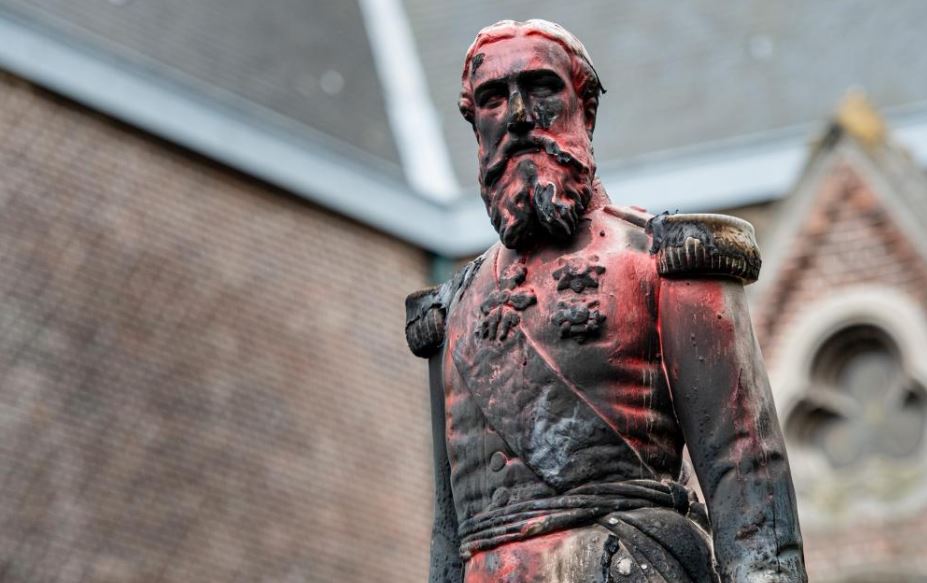A statue of former Belgian King Leopold II in Antwerp that was set on fire last week has been removed to be restored and put in a museum in the city.
On Tuesday morning, the statue was removed from its place on the market place in the Ekeren district of Antwerp to be transferred to the depot of the Middelheim Museum in Antwerp, after it had been set on fire last week.
"The statue has been vandalised and will be removed and temporarily housed in the sculpture collection of the Middelheim Museum, where it will be restored," Johan Vermant, spokesperson for Antwerp mayor Bart De Wever, told The Brussels Times, adding that it is impossible to predict when the restoration will be complete, as the damage is extensive.
THEY REMOVED A LEOPOLD II STATUE THAT WAS BURNED ? 1 down, 5 to go ? pic.twitter.com/rA8wa9hdnO
— ??? (@Godvrede) June 9, 2020
In 2018, the statue had been outfitted with a sign in an attempt to provide historical context about Leopold II’s colonial rule.
"Since the square where the statue stood will be redesigned in 2023, and there will be no room for it afterwards, it will probably remain part of the museum's collection," Vermant added.
In another incident, a Leopold II bust in Ghent was splashed in red paint and marked "I can’t breathe," the final words of George Floyd, an unarmed black man whose death at the hands of US police has sparked nationwide uprisings over police brutality and systemic racism.
Related News
- Leopold II statue defaced at Africa Museum
- Petition launched to remove all statues of Leopold II in Brussels
- Leopold II statue set on fire in Antwerp
The removal of the statue comes amid a wave of support for the removal of all monuments built to honour the former king, who brutalised Congolese people during the years he exploited the territory for his personal gain.
Lack of reliable sources have made it difficult to form an accurate estimation of the number of Congolese deaths Leopold II's colonial regime is responsible for, but modern estimates range from 1 million to 15 million. In recent years, a consensus of around 10 million deaths has been reached among historians.
Maïthé Chini
The Brussels Times

